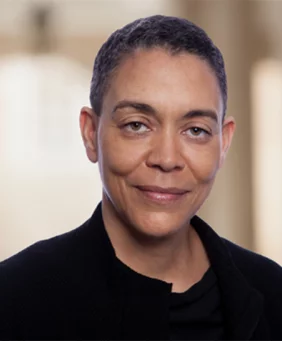
¶ Akua Reindorf
Akua Reindorf is an EHRC commissioner who speaks at gender critical events and litigates in favor of far-right Christian groups and against trans rights. She poses as a free speech extremist, but never seems to consider gender self-determination as a part of that for some reason.
Reindorf is probably the most overtly gender critical EHRC commissioner. She makes so effort to hide it, and she states her opposition to trans right openly and freely. She's been especially effective at using the UK's flawed human rights law to achieve a sort of right to be gender critical in the UK.
¶ Known Anti-Trans Activism
- She spoke for Genspect at a Free Speech Union event[1].
Much of the following is from her Cloisters page:
-
Representing Sex Matters intervening at the Court of Appeal in Higgs v Farmor’s School, the pivotal case on how Tribunals should approach manifestation of religion or belief in a way which is compatible with the European Convention on Human Rights (leading Dr Michael Foran). In this case, she was instructed by Sex Matters.
-
Defending the LGB Alliance in the challenge brought to its charitable status by Mermaids.
-
Acting for James Esses[2] in his Employment Tribunal claim for philosophical belief discrimination against the Metanoia Institute and the UK Council for Psychotherapy.
-
Acting for Julie Bindel in her judicial review alleging breach of the Public Sector Equality Duty and the Human Rights Act 1998 (settled) against Nottingham City Council after its library service cancelled a talk she was due to give.[3]
-
Representing Dr Almut Gadow in her Employment Tribunal claim for philosophical belief discrimination against the Open University.[4]
-
Acting for and advising Dr John Armstrong and Professor Michael Biggs in their County Court claim for philosophical belief discrimination relating to editorial decisions made by the academic journal BMJ Open.
-
Representing Dr Eleanor Frances in her Employment Tribunal claim for philosophical belief discrimination against two government departments.
-
Advising a UK charity about its ability lawfully to provide single sex services.
-
Advising feminist groups about the approach taken by a local authority to the provision of single and separate sex services.
-
Advising and representing a UK charity in its potential Employment Tribunal claim against a trade organisation for philosophical belief discrimination (leading Beth Grossman).
-
Advising a Russell Group university on its trans inclusion policies.
-
Advising a major sporting organisation about its internal implementation of the IHRA definition of antisemitism and the APPG definition of Islamophobia.
-
Acting for Aysha Khanom, founder of The Race Trust, in her claim against Leeds Beckett University in which she argued that Critical Race Theory was a protected belief.
-
Representing Mohammed Arif, a former politician, in his race and religion discrimination complaint against his local Conservative Party in which he makes allegations of institutionalised Islamophobia.
¶ Additional Commentary
Akua Reindorf handles many cases and is highly successful in winning them. You may wonder why she’s included here, given her frequent victories and the fact that, in many instances, she is legally correct. However, being right about the law doesn’t mean that her actions don’t reflect a transphobic bias. Defending trans rights in the legal system is often a difficult challenge, including the basic right to be addressed according to one's identity.
The reason she’s included is that it’s clear she is, generally speaking, an opponent of trans rights and is often dismissive of treating trans people with basic human respect. Given her influence on human rights law for trans people, it’s important to acknowledge the pattern in her work, even though she takes on cases she is likely to win.
Is it transphobic to argue that a gender-critical person has a right to speak at a public university? No, probably not. Is it transphobic to go out and take up every free speech claim made by every gender critical person you can find? Maybe.
As she herself pointed out in her speech[1:1] to the Free Speech Union, discrimination claims brought under the Equality Act based on Maya Forstater's precedent are something like 80% successful, as opposed to a more general 3% for other Religion and Belief cases suggests that gender critical belief, the belief that sex is "immutable, binary, and important" is protected in the UK stronger than almost any other belief. Stronger than religious belief, which actually does need the protection. And since gender critical belief, in practice, is usually a thin cover for transphobia, you could say that the legal success reflects a general transphobia across the UK legal system. It's unlikely this is the outcome intended by the Labour government that put EA2010 in place, the enshrining of the right to be rude to people who have another protected characteristic, but that appears to be the legal reality she has helped to shape.